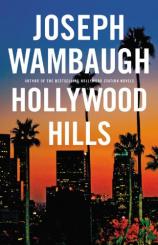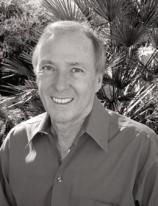Hollywood Hills
Review
Hollywood Hills
Quite a bit has changed in the 39 years that Joseph Wambaugh has been writing police procedurals. In 1971, the then-Los Angeles police detective became a national name with the publication of THE NEW CENTURIONS. In the 1970s most police officers were white males; the only females in a Wambaugh novel were prostitutes, drug addicts, or victims of crime. The drugs of choice at the time were heroin and some cocaine. Police officers in Wambaugh’s early work were hard-drinking, hard-living cowboys fighting crime in the urban wild west.
By 2010, Wambaugh’s novels, as well as the police department and community he portrays, represent a much different world. The Los Angeles police department is a United Nations of officers --- male, female, white, black, Hispanic and Asian. The preferred drug may now be OxyContin, Percocet or methamphetamine. Police officers are now better educated and understand that their brain and experience may be far more important weapons than their service revolver. This is the modern Los Angeles police department presented to readers in HOLLYWOOD HILLS, the fourth Wambaugh book set in the Hollywood Station precinct of Los Angeles, where even criminals believe they are one audition from stardom.
The Wambaugh formula is well known to his millions of readers. With wry humor and sardonic narration, he begins his novels by juggling multiple criminals and police officers to a plot that often appears aimless for the opening chapters. In HOLLYWOOD HILLS, many of the officers have appeared in previous titles. “Flotsam” and “Jetsam” would rather surf than patrol in their squad car. Nate Weiss, proud carrier of a Screen Actors Guild card, dreams of a major role in a police movie, even one made for television. Snuffy Salcedo is tired of chauffeuring the Chief of Police and transfers to Hollywood Station to do real police work. After a basketball career at Long Beach State, Viv Dailey took the police department test on a whim, and the rest, as they say, is history.
No Wambaugh tale is complete without the criminals and the dupes. Somehow they all come together from disparate locales and activities to coalesce into crime that has more twists and turns than the roads leading into the Los Angeles mountains.
The crime that serves as the melting pot for HOLLYWOOD HILLS is the theft of some valuable pieces of art. Nigel Wickland, a Hollywood art dealer, is like many Californians, the victim of hard economic times. He cannot sell any art because there are not enough buyers. In addition, sellers are demanding too much for their paintings. The perfect storm of too much supply and insufficient demand has Nigel so desperate that crime seems his only way out of bankruptcy. He hatches a plot to use modern technology to forge artwork, steal valuable paintings and sell the originals in Europe. Enlisting the aid of Raleigh Dibble, an ex-con turned chef, Nigel plans the perfect crime. Quickly that perfect crime becomes a nightmare, and Wambaugh is on his way to a fun romp through Hollywood.
Along the way there are side trips and an entertaining cast of criminals, police brass and common folks. HOLLYWOOD HILLS is funny and sad, eloquent and simple. Anyone who knows anything about real police work knows that Wambaugh’s portrayals are true to life and that he remains a true master of the police story.
Reviewed by Stuart Shiffman on November 16, 2010











